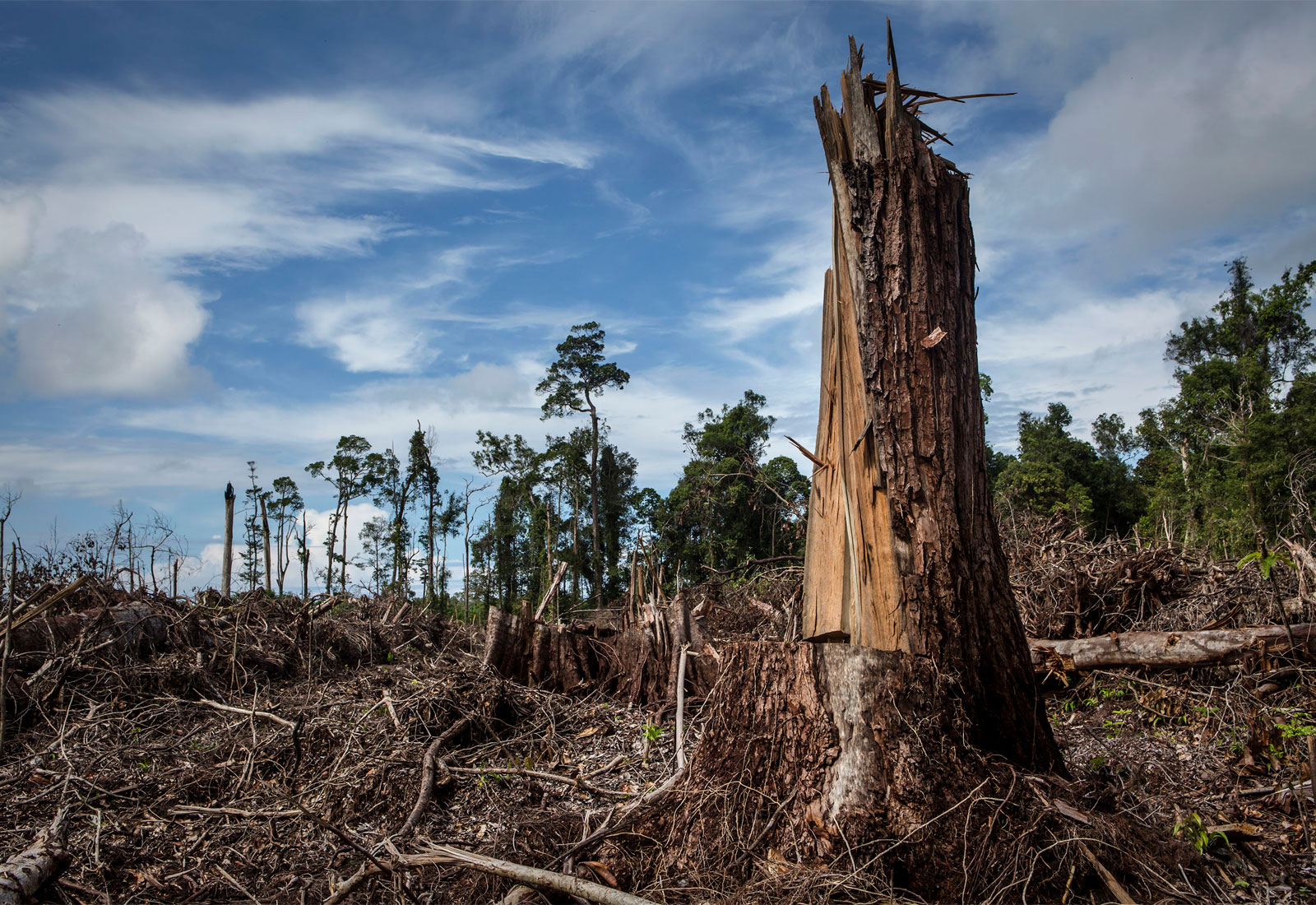Leaders from more than 100 countries pledged to halt deforestation by 2030, as part of an agreement inked Tuesday at COP26, the United Nations climate summit taking place in Glasgow, Scotland.
The U.S., Brazil, and Russia were among the nations that signed the agreement, which is backed by more than $19 billion in public and private funding. Representing more than 85 percent of the world’s forests, the signatories committed to protecting and restoring forests while promoting sustainable land-use and agricultural practices.
Combating deforestation is seen as a crucial step in limiting the impacts of climate change, as the world’s forests absorb roughly one-third of carbon emissions annually. Agriculture, forestry and other land uses account for nearly a quarter of global greenhouse-gas emissions, according to the U.N. Intergovernmental Panel on Climate Change.
“These great teeming ecosystems — these cathedrals of nature — are the lungs of our planet,” said British Prime Minister Boris Johnson in a press release announcing the agreement. “Forests support communities, livelihoods and food supply and absorb the carbon we pump into the atmosphere. They are essential to our very survival.”
In addition to $7.2 billion in private-sector funding, a dozen countries pledged $12 billion to support activities in developing countries such as restoring damaged land, reducing wildfire risk, and supporting Indigenous people and local communities in their efforts to protect their forests.
A group of government and private funders agreed to contribute $1.7 billion to Indigenous communities and organizations, which, according to a study published earlier this year, received less than 1 percent of international funding for climate mitigation and adaptation during the past decade.
In an email to Grist, Wayne Walker, carbon program director at Woodwell Climate Research Center, emphasized the importance of engaging Indigenous communities in efforts to solve the “linked global crises” of forest loss and climate change.
“Bolstering Indigenous land rights and providing communities with much-needed tools and information will continue to be among the most effective approaches we have to addressing these acute global threats,” Walker said.
On Monday, 28 governments announced a plan to rein in agricultural practices that threaten forests, such as the deforestation linked to large-scale oil palm and soybean farms.
Environmental groups were largely supportive of the stated goals of the agreements, though many questioned whether the deforestation targets were realistic and enforceable—while others wondered why they aren’t more ambitious.
“We’re facing a climate emergency so giving ourselves another 10 years to address this problem doesn’t quite seem consistent with that,” Nigel Sizer, former president of the Rainforest Alliance, told BBC News.
Skeptics cited a similar plan adopted in 2014, which sought to halve global deforestation by 2020 and end it by 2030. A later report found that there was “little evidence” the signatories were on track to meet those targets.
Notably absent from that plan was a commitment from Brazil, home to the planet’s largest rainforest, where deforestation has accelerated in recent years. The South American nation was among the signatories of Monday’s agreement, as were multiple Central African nations encompassing the Congo Basin forests, which make up the world’s second-largest tropical rainforest region. Eleven countries, along with the Bezos Earth Fund, agreed to contribute roughly $1.5 billion toward deforestation and restoration efforts in the Congo Basin region.



